
Out of all the tea plantations I went to during my trip, Castleton seemed to have the most modern and well-kept facilities. The operation is large and the tea estate itself supports the livelihood of thousands of families. One of the defining characteristics of Castleton for me was the emphasis they put on "clonal teas."
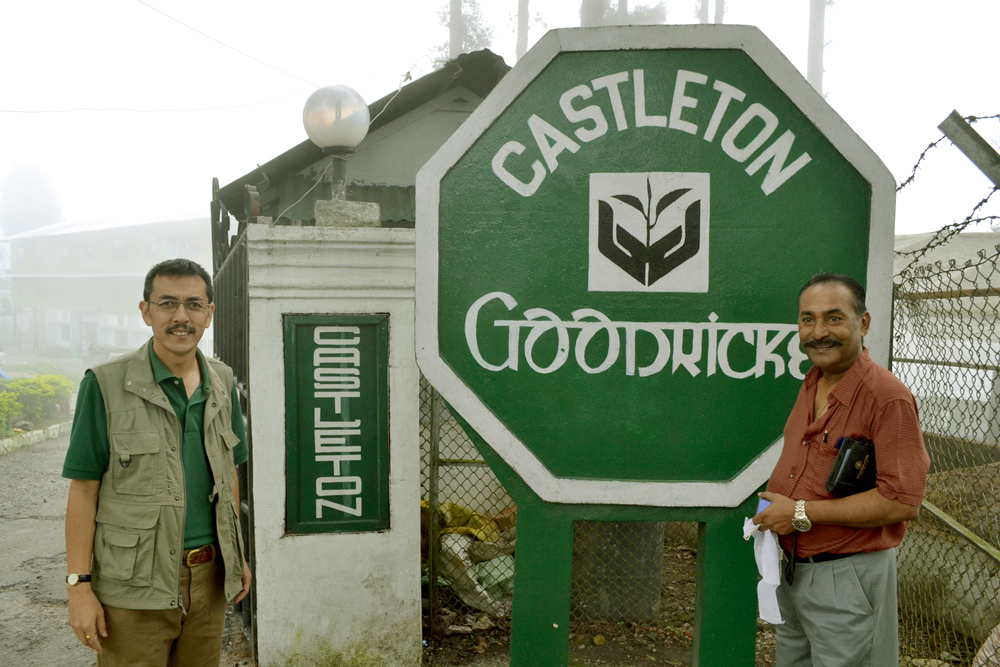 Entrance to Castleton with manager Pranub Mukhai and expert tea taster PK Ganguly
Entrance to Castleton with manager Pranub Mukhai and expert tea taster PK Ganguly
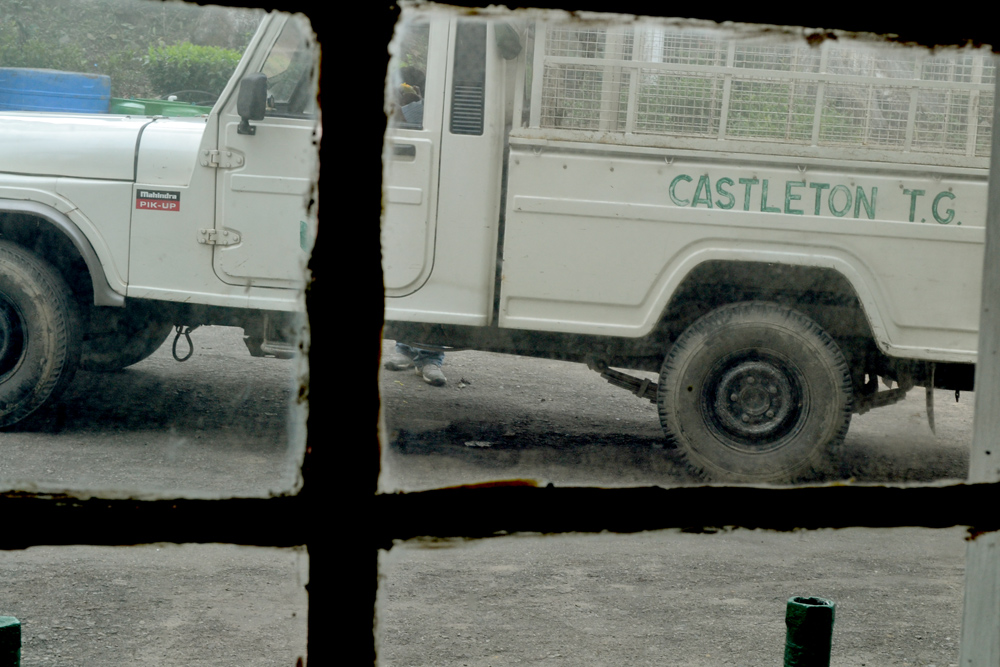 Castleton trucks
Castleton trucks
 Fermenting beds
Fermenting beds
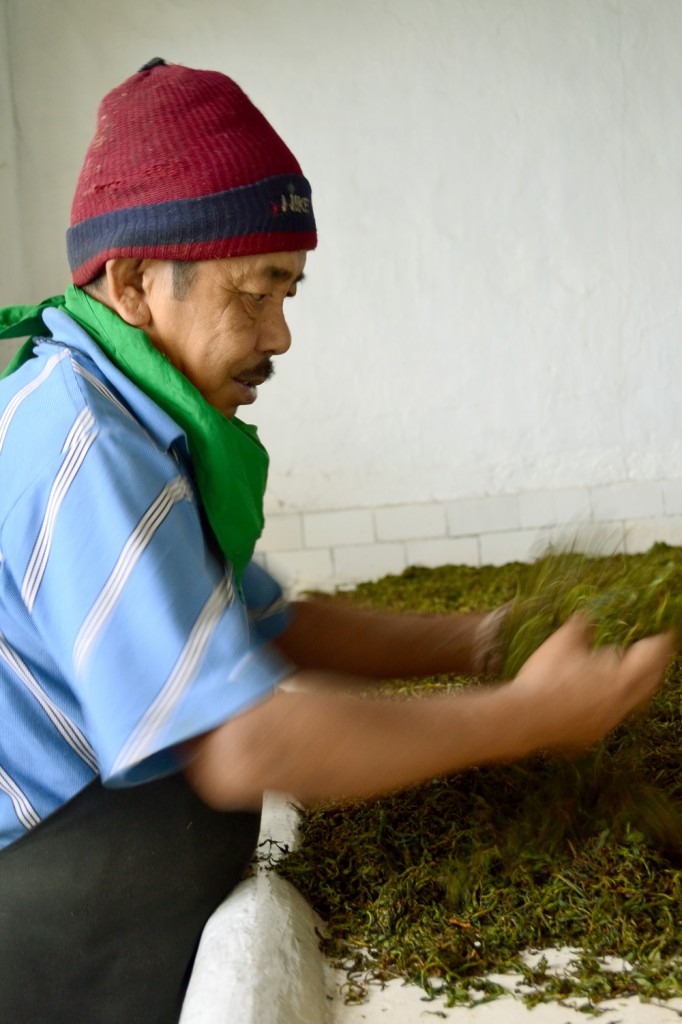 Separating knots
Separating knots
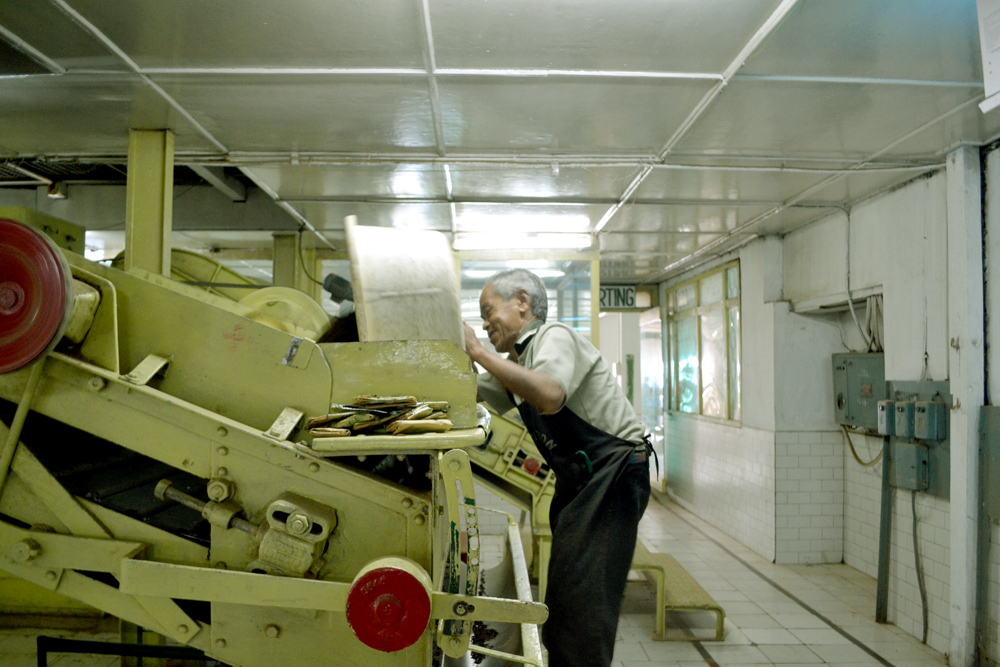
 Drying
Drying
Clonal teas are teas that are produced using cloned plants. Instead of starting from seed, these bushes are grown from hybrid plants that are developed in laboratories. Scientists will often breed for specific characteristics to allow for better yield and health of the plant. All factors can be controlled -- from the taste to the appearance of the leaf.
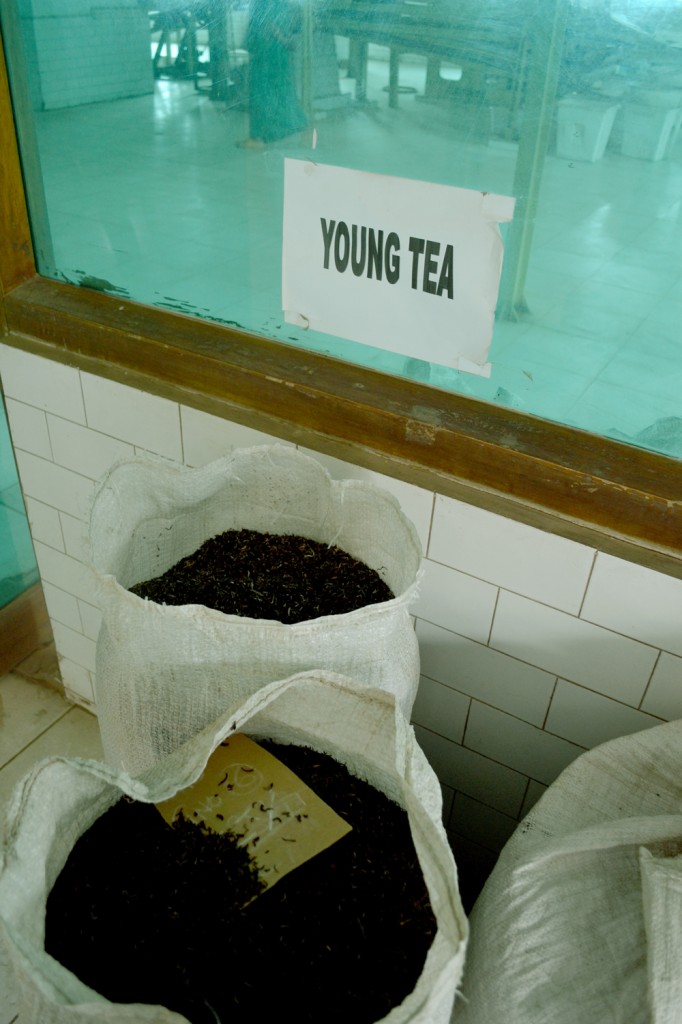 Clonal teas are often referred to as "young teas"
Clonal teas are often referred to as "young teas"
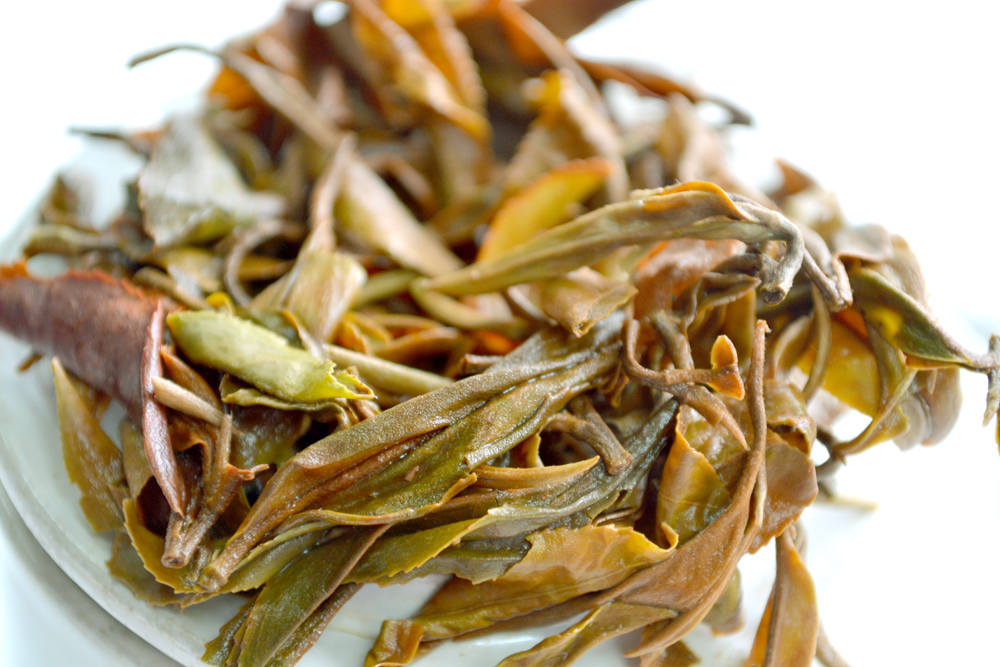 Wet clonal leaves
Wet clonal leaves
The downside is that sometimes clonal teas can lack diversity or depth in the flavor because they are bred for specific notes. However, because they are easily controlled, they produce predictable results which can be easier to sell for a grower who has customers that like certain characteristics.
For example, the Japanese tend to like aesthetically pleasing leaves, which sometimes leaves flavor in the backseat. On the other hand, the Germans like a brisker tea that doesn't need to look as delicate as the Japanese preferred product. Based on these preferences, tea estates who make clonal teas will develop clones that will please their customers.
A perfect example is this white tea that will ultimately go to a customer in Japan. The leaves are beautiful and will please Japanese customers who drink from glass tea pots.

For an industry that has kept to the same techniques for over a century, the introduction of clonal technology was revolutionary.
As I moved through the mountains of Darjeeling, hopping from
one estate to
another, it because clear that every tea estate has its own strength. I left Castleton feeling like I had just visited "the pros." With flawless maintenance and large-scale production, it was no wonder that they are owned by the
Goodricke Group, a large company that owns 17 tea plantations through the Darjeeling and Assam areas.
Enjoy all the posts of Darjeeling Discovery:
Goomtee Tea Estate
Junpana Tea Estate
 Out of all the tea plantations I went to during my trip, Castleton seemed to have the most modern and well-kept facilities. The operation is large and the tea estate itself supports the livelihood of thousands of families. One of the defining characteristics of Castleton for me was the emphasis they put on "clonal teas."
Out of all the tea plantations I went to during my trip, Castleton seemed to have the most modern and well-kept facilities. The operation is large and the tea estate itself supports the livelihood of thousands of families. One of the defining characteristics of Castleton for me was the emphasis they put on "clonal teas."
 Entrance to Castleton with manager Pranub Mukhai and expert tea taster PK Ganguly
Entrance to Castleton with manager Pranub Mukhai and expert tea taster PK Ganguly
 Castleton trucks
Castleton trucks
 Fermenting beds
Fermenting beds
 Separating knots
Separating knots

 Drying
Clonal teas are teas that are produced using cloned plants. Instead of starting from seed, these bushes are grown from hybrid plants that are developed in laboratories. Scientists will often breed for specific characteristics to allow for better yield and health of the plant. All factors can be controlled -- from the taste to the appearance of the leaf.
Drying
Clonal teas are teas that are produced using cloned plants. Instead of starting from seed, these bushes are grown from hybrid plants that are developed in laboratories. Scientists will often breed for specific characteristics to allow for better yield and health of the plant. All factors can be controlled -- from the taste to the appearance of the leaf.
 Clonal teas are often referred to as "young teas"
Clonal teas are often referred to as "young teas"
 Wet clonal leaves
The downside is that sometimes clonal teas can lack diversity or depth in the flavor because they are bred for specific notes. However, because they are easily controlled, they produce predictable results which can be easier to sell for a grower who has customers that like certain characteristics.
For example, the Japanese tend to like aesthetically pleasing leaves, which sometimes leaves flavor in the backseat. On the other hand, the Germans like a brisker tea that doesn't need to look as delicate as the Japanese preferred product. Based on these preferences, tea estates who make clonal teas will develop clones that will please their customers.
A perfect example is this white tea that will ultimately go to a customer in Japan. The leaves are beautiful and will please Japanese customers who drink from glass tea pots.
Wet clonal leaves
The downside is that sometimes clonal teas can lack diversity or depth in the flavor because they are bred for specific notes. However, because they are easily controlled, they produce predictable results which can be easier to sell for a grower who has customers that like certain characteristics.
For example, the Japanese tend to like aesthetically pleasing leaves, which sometimes leaves flavor in the backseat. On the other hand, the Germans like a brisker tea that doesn't need to look as delicate as the Japanese preferred product. Based on these preferences, tea estates who make clonal teas will develop clones that will please their customers.
A perfect example is this white tea that will ultimately go to a customer in Japan. The leaves are beautiful and will please Japanese customers who drink from glass tea pots.
 For an industry that has kept to the same techniques for over a century, the introduction of clonal technology was revolutionary.
As I moved through the mountains of Darjeeling, hopping from one estate to another, it because clear that every tea estate has its own strength. I left Castleton feeling like I had just visited "the pros." With flawless maintenance and large-scale production, it was no wonder that they are owned by the Goodricke Group, a large company that owns 17 tea plantations through the Darjeeling and Assam areas.
Enjoy all the posts of Darjeeling Discovery:
Goomtee Tea Estate
Junpana Tea Estate
For an industry that has kept to the same techniques for over a century, the introduction of clonal technology was revolutionary.
As I moved through the mountains of Darjeeling, hopping from one estate to another, it because clear that every tea estate has its own strength. I left Castleton feeling like I had just visited "the pros." With flawless maintenance and large-scale production, it was no wonder that they are owned by the Goodricke Group, a large company that owns 17 tea plantations through the Darjeeling and Assam areas.
Enjoy all the posts of Darjeeling Discovery:
Goomtee Tea Estate
Junpana Tea Estate



Comments (2)
このストーリーもANAの企画で取り上げたいですね。よろしくお願い申し上げます。
企画してみます!